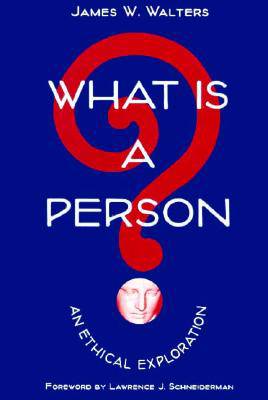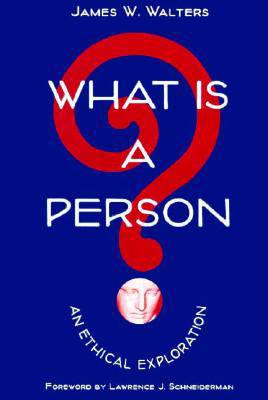
- Afhalen na 1 uur in een winkel met voorraad
- Gratis thuislevering in België vanaf € 30
- Ruim aanbod met 7 miljoen producten
- Afhalen na 1 uur in een winkel met voorraad
- Gratis thuislevering in België vanaf € 30
- Ruim aanbod met 7 miljoen producten
Zoeken
Omschrijving
At a time when technology can sustain marginal life, it is ever more
important to understand what constitutes a person. What are the medical,
ethical, moral, mental, legal, and philosophical criteria that determine
protectable human life?
Following immediately on the publication of his highly praised book Choosing
Who's to Live, James Walters addresses with depth and wisdom another
ambitious and complicated matter: determining the nature of personhood.
By providing a much-needed religious/philosophical context for the discussion--examining
contemporary thinking on just what constitutes valuable life--Walters
broadens his inquiry beyond the human to include other animals and deals
with the phenomenon of anencephalic infants, those who are born without
higher brains.
Searching for a measurable and humane standard of personhood, Walters
looks at the current definition of it and declares it inadequate--offering
instead the idea of proximate personhood, with criteria for helping to
determine which individuals possess a unique claim to life.
important to understand what constitutes a person. What are the medical,
ethical, moral, mental, legal, and philosophical criteria that determine
protectable human life?
Following immediately on the publication of his highly praised book Choosing
Who's to Live, James Walters addresses with depth and wisdom another
ambitious and complicated matter: determining the nature of personhood.
By providing a much-needed religious/philosophical context for the discussion--examining
contemporary thinking on just what constitutes valuable life--Walters
broadens his inquiry beyond the human to include other animals and deals
with the phenomenon of anencephalic infants, those who are born without
higher brains.
Searching for a measurable and humane standard of personhood, Walters
looks at the current definition of it and declares it inadequate--offering
instead the idea of proximate personhood, with criteria for helping to
determine which individuals possess a unique claim to life.
Specificaties
Betrokkenen
- Auteur(s):
- Uitgeverij:
Inhoud
- Aantal bladzijden:
- 208
- Taal:
- Engels
Eigenschappen
- Productcode (EAN):
- 9780252022784
- Verschijningsdatum:
- 01/01/1997
- Uitvoering:
- Hardcover
- Formaat:
- Genaaid
- Afmetingen:
- 159 mm x 235 mm
- Gewicht:
- 453 g

Alleen bij Standaard Boekhandel
+ 134 punten op je klantenkaart van Standaard Boekhandel
Beoordelingen
We publiceren alleen reviews die voldoen aan de voorwaarden voor reviews. Bekijk onze voorwaarden voor reviews.







